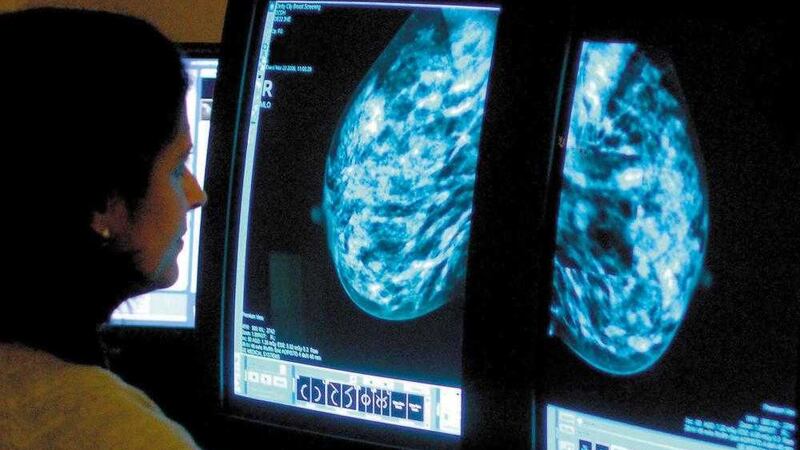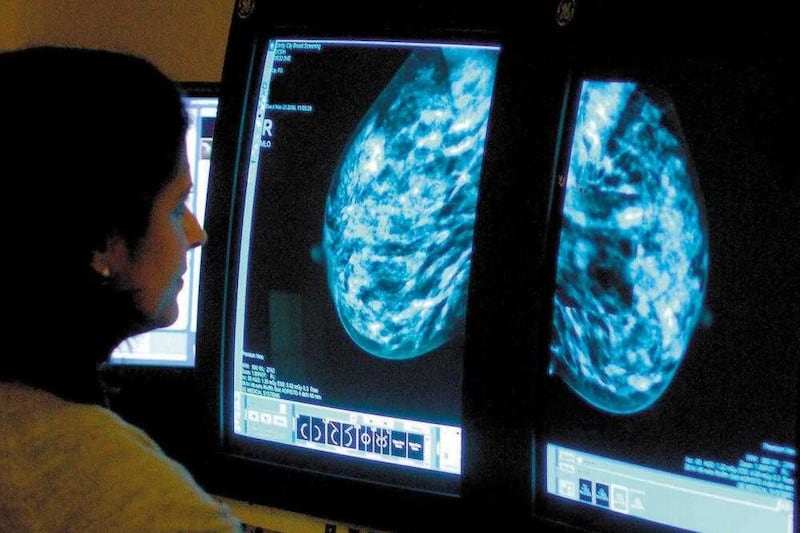NORTHERN Ireland’s biggest health trust has what is believed to be the worst ever NHS performance for seeing patients with suspected breast cancer - with less than one in 10 women seen within the fortnight target.
The Irish News has learned the Belfast Trust's dwindling performance over the past three months hit a new low in the first few weeks of January, with just nine per cent of cases requiring urgent consultant assessments being seen on time. The government target is 100 per cent.
These 'red flag' patients include women who detect a lump and are referred by their GP to hospital for mammograms or fine needle biopsies within 14 days.
The astonishing breach comes as the north's hospital waiting lists show no sign of slowing down despite a £40 million bailout to tackle the backlog through private sector work.
It has also emerged that the Northern health trust massively breached targets in December - when just 11 per cent of urgent breast cancer referrals were seen within 14 days.
It is understood these referrals are now back on track.
Last month the Irish News revealed the latest referral figures from November 2015 "performance reports" by the Health and Social Care Board, which showed half of suspected breast cancer cases across the north's five health trusts did not get timely referrals to consultants.
But officials at the Belfast Trust have now confirmed the January backlog, which began last summer and was linked to staff shortages and increased demand.
The trust did not respond when asked if the backlog was the worst performance record across the NHS for suspected breast cancer referral.
Instead in a statement it said there had been a big increase in referrals following October's breast cancer awareness month when a Public Health Agency campaign..
"We routinely receive between 60 and 70 referrals a week. This high levels of referrals, coupled with a recurrent capacity shortfall led to a drop in performance that continued into the first two weeks of January 2016," a spokeswoman said.
Two additional clinics have now been set up to cope with the backlog, she said.
"We are pleased to confirm that as of today the additonal clinics have brought the current waiting time for 'red flag' referred patients being seen within 14 days with no one waiting longer than 21 days.
"The trust will continue to run weekly additional evening clinics to manage the red flag waiting time.
"We have now received welcome additional investment from the health and social care board which will allow us to implement an additional weekly one-stop clinic to address the recurrent demand and continue to improve waiting time."
A Belfast GP whose patients were caught up in the backlog last summer said the delays around a cancer diagnosis is one of the worst parts of the "treatment pathway".
"When you are facing a wait for a diagnosis you have no control and the uncertainty is awful," said west Belfast-based Dr Michael McKenna.
"When there is a suspected cancer and guidelines are set down to see that patient, then they should be seen in that time."
Dr McKenna said the north's waiting times across many specialties are now "among the worst in Europe" and that "management of the system needed to looked at".
Meanwhile , former health minister Michael McGimpsey said the breaches were "frightening".
"Targets are set for cancer treatment because there is very sound medical evidence that proves the longer a patient has to wait for treatment the greater risk they may ultimately come to harm.
"While the scale of the crisis across our health services is deepening, many people will be shocked at just how quickly service provision in cancer diagnostics and treatment is deteriorating."



